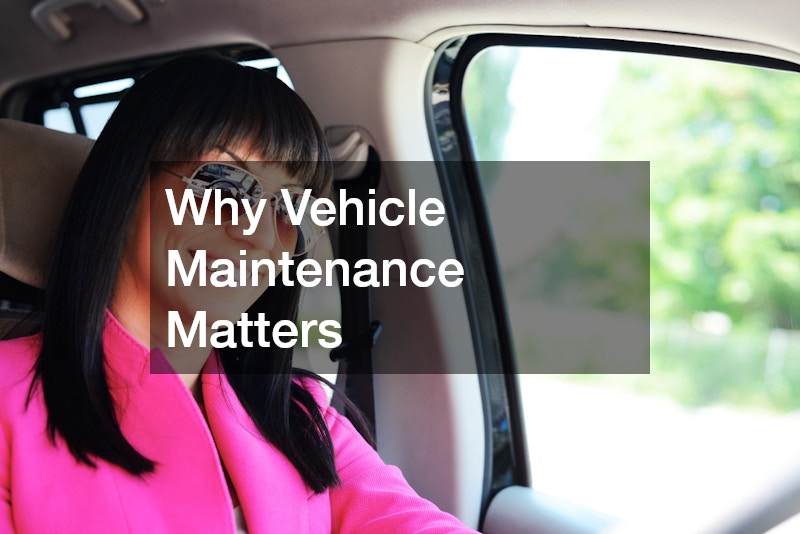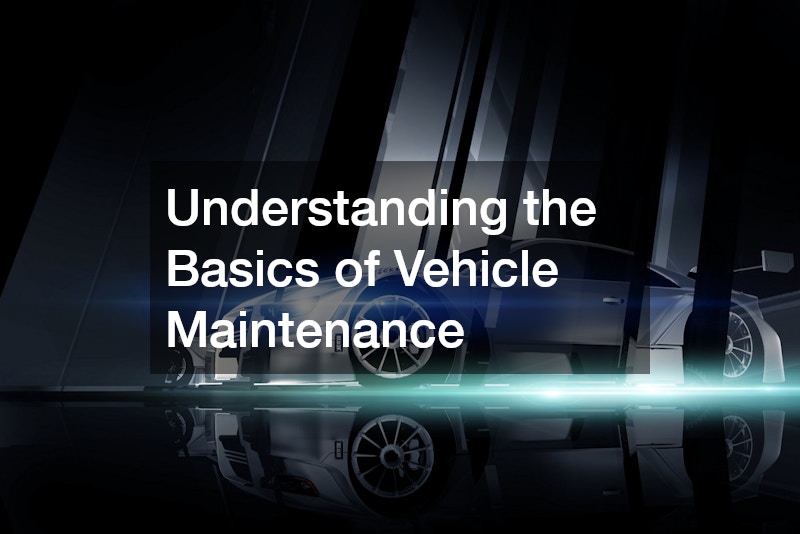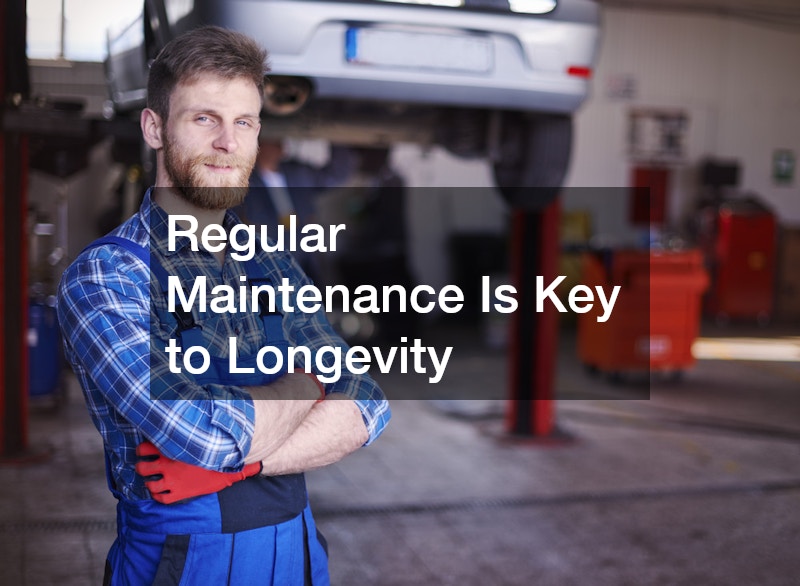As a new driver, owning and maintaining a vehicle is an exciting but sometimes overwhelming responsibility. The key to ensuring your vehicle remains safe, reliable, and long-lasting is understanding the basics of vehicle maintenance and repair. Regular maintenance can prevent costly repairs down the road, improve the performance of your vehicle, and extend its lifespan. Whether you’re learning how to care for your car for the first time or navigating the world of auto repairs, this guide will help you understand essential vehicle upkeep and the services you should consider.
Why Vehicle Maintenance Matters

Your vehicle is likely one of your most significant investments, and proper maintenance helps protect that investment. By performing routine checkups and addressing minor repairs early on, you can avoid more significant issues later. Regular vehicle care enhances performance, fuel efficiency, and safety, ensuring that your car stays in optimal condition for years to come.
Ignoring essential maintenance tasks, such as oil changes or brake inspections, can lead to larger, more expensive repairs down the road. For example, something as simple as keeping your tires properly inflated can extend their life and improve fuel efficiency. By staying on top of maintenance tasks, you can save money in the long run while enjoying a smooth, reliable driving experience.
Let’s dive into the essential aspects of vehicle maintenance and repair that every new driver should be familiar with.
Understanding the Basics of Vehicle Maintenance

To keep your vehicle running smoothly, it’s important to familiarize yourself with routine maintenance tasks. These basic tasks will help ensure that your car remains safe, reliable, and efficient:
1. Regular Oil Changes
One of the most critical aspects of vehicle maintenance is ensuring your engine oil is clean and at the right level. Oil lubricates the engine’s moving parts, reducing friction and preventing overheating. Over time, oil can break down and become less effective, which can cause engine damage if left unchecked.
Most experts recommend changing your oil every 3,000 to 5,000 miles, depending on the type of oil your vehicle uses. Consult your owner’s manual for specific recommendations for your car. Skipping oil changes can result in costly engine repairs or even engine failure, so it’s important to stay on top of this task.
2. Tire Maintenance
Your tires are the only point of contact between your vehicle and the road, making them a critical component of safe driving. Regular tire maintenance includes checking the tire pressure, rotating the tires, and inspecting them for wear.
A visit to a tire repair shop is essential if you notice any unusual wear patterns, bald spots, or if you experience a flat tire. Properly inflated and maintained tires improve fuel efficiency, extend the lifespan of your tires, and ensure better handling on the road.
3. Brake System Checks
Your brakes are one of the most critical safety features of your vehicle. Regular brake inspections ensure that your brake pads, rotors, and calipers are in good condition. If you notice squeaking, grinding, or reduced braking power, it’s essential to have your brakes checked immediately by an auto mechanic.
Ignoring brake problems can lead to dangerous driving conditions and costly repairs. It’s better to address any issues early to prevent more serious problems down the road.
4. Battery Care
A well-maintained battery ensures that your car starts reliably every time. Batteries typically last between three and five years, but it’s important to have them tested regularly. If your car struggles to start, or if you notice dim headlights or electrical issues, it could be a sign that your battery is nearing the end of its life.
Most auto mechanics can perform a battery test to determine if it’s still holding a charge or if it needs to be replaced. Keeping your battery terminals clean and free of corrosion can also extend its lifespan.
When to Visit Auto Repair Shops

Despite your best efforts to keep your vehicle in top shape, there will inevitably come a time when you need to visit an auto body shop or schedule more extensive repairs. Whether you’ve been in an accident or your vehicle needs specialized care, it’s essential to know when to seek professional help.
1. Collision Repairs
Accidents happen, and even minor fender benders can result in damage to your vehicle’s body or internal components. Collision repairs can range from simple paint touch-ups to more extensive structural fixes. After an accident, it’s important to visit a trusted auto body shop to assess the damage and ensure your vehicle is safe to drive.
In some cases, auto paint shops can restore your car’s exterior to its original condition, making it look as good as new. Whether your car has minor scratches or needs a complete repaint, a professional auto paint shop can help you restore its appearance.
2. Diesel Repair Services
If you drive a diesel vehicle, you may need to seek out a diesel repair service for specialized maintenance. Diesel engines are different from gasoline engines and require specific expertise. Common issues with diesel vehicles include fuel injection problems, turbocharger malfunctions, and exhaust system issues.
Working with a repair shop that specializes in diesel vehicles ensures that your engine receives the care it needs. Regular maintenance, such as oil changes and fuel system cleanings, can help keep your diesel engine running smoothly and prevent costly repairs.
3. Window and Tinting Services
If you’re interested in improving your vehicle’s aesthetics or reducing glare, you might consider auto window tinting services. Window tinting not only adds style but also offers practical benefits, such as reducing the interior temperature, protecting your upholstery from UV damage, and providing added privacy.
Many auto body shops offer window tinting services, and it’s important to work with professionals to ensure the tint is applied correctly. Poor-quality window tinting can lead to bubbling, peeling, or discoloration, so it’s worth investing in a reputable service.
4. Auto Anti-Theft GPS Tracking
Security is a top concern for vehicle owners, especially in areas with high rates of car theft. Auto anti theft GPS tracking systems can provide peace of mind by allowing you to track your vehicle’s location in real-time. In the event of a theft, these systems can help authorities locate and recover your car quickly.
Auto anti-theft GPS tracking systems are often installed by specialized mechanics or auto body shops. When considering an anti-theft system, choose one that offers reliable GPS tracking, real-time alerts, and other features like remote engine shutdown to protect your vehicle from theft.
Dealing With Roadside Emergencies
Even with regular maintenance, unexpected roadside emergencies can occur. Knowing how to handle these situations and where to turn for help can save you from stressful situations.
1. Heavy Duty Towing
If you find yourself stranded on the side of the road due to a breakdown, accident, or other issue, heavy duty towing services are essential for getting your vehicle to safety. Whether you drive a small sedan or a large truck, towing companies can transport your vehicle to an auto mechanic for repairs.
In cases where your vehicle is too large for standard towing, heavy-duty towing companies have the equipment necessary to handle larger vehicles. These services are crucial for ensuring that your vehicle is safely transported without causing further damage.
2. Tire Repairs and Replacements
Flat tires are one of the most common roadside emergencies. While many drivers carry a spare tire, there may be instances where a tire repair or replacement is necessary. In these situations, visiting a tire repair shop ensures that your tire is patched or replaced correctly.
Many tire repair shops also offer roadside assistance, so it’s helpful to keep their contact information handy in case of an emergency. Regular tire inspections can help prevent flats, but it’s always good to be prepared for unexpected tire issues.
The Importance of Using Wholesale Car Parts
When it comes to repairs and maintenance, the quality of the parts used on your vehicle matters. Wholesale car parts are a cost-effective way to ensure that your vehicle is equipped with high-quality components. Whether you need new tires, brake pads, or engine parts, buying wholesale allows you to access parts at lower prices without sacrificing quality.
Many auto mechanics source their parts from wholesale suppliers, passing the savings on to their customers. When visiting a repair shop, ask about the quality of the parts they use and whether they source them from trusted wholesale suppliers.
Finding the Right Auto Mechanic
One of the most important aspects of vehicle maintenance is finding a trustworthy and reliable auto mechanic. Your mechanic will be responsible for ensuring that your car is in good working order, so it’s essential to choose someone with the right experience and qualifications.
1. Look for Certifications
When selecting an auto mechanic, look for certifications from organizations like the National Institute for Automotive Service Excellence (ASE). ASE-certified mechanics have demonstrated their knowledge and skills through rigorous testing, ensuring that they are qualified to work on your vehicle.
Certified mechanics are more likely to provide high-quality service and have the expertise needed to diagnose and repair complex issues.
2. Read Reviews and Ask for Recommendations
Reading customer reviews and asking for recommendations from friends or family can help you find a mechanic with a good reputation. Look for mechanics who have a history of providing reliable, honest service at fair prices.
Word-of-mouth recommendations are often one of the best ways to find a mechanic who can be trusted to care for your vehicle.
3. Consider Specialized Services
If your vehicle has specific needs, such as a diesel engine or high-end luxury components, you may need to seek out a mechanic who specializes in these areas. For example, if you drive a diesel vehicle, it’s important to work with a mechanic who offers diesel repair services.
Similarly, if your car has been in an accident, you’ll want to find a mechanic who is experienced in collision repairs. Specialized mechanics have the training and tools needed to handle more complex repairs and ensure that your vehicle is returned to its pre-accident condition.
Regular Maintenance Is Key to Longevity

The key to a long-lasting, reliable vehicle is regular maintenance. By following the tips outlined in this guide and staying on top of routine care, you can avoid many of the common issues that lead to expensive repairs. From regular oil changes to tire repair shops, each aspect of vehicle maintenance plays a role in keeping your car running smoothly.
By understanding the services available to you and knowing when to seek professional help, you can ensure that your vehicle remains in excellent condition for years to come.
How to Find Good Auto Insurance and the Risks of Not Having Coverage
One of the most critical aspects of vehicle ownership is ensuring that you have proper auto insurance coverage. Not only is auto insurance a legal requirement in most places, but it also provides financial protection in case of accidents, theft, or damage to your vehicle. As a new driver, understanding how to find the right auto insurance policy and the risks of not having coverage is essential for your financial security and peace of mind.
How to Find Good Auto Insurance
Finding the right auto insurance can be overwhelming, especially with so many options available. To ensure that you choose the best policy for your needs, consider the following factors:
1. Understand the Types of Coverage
Auto insurance policies typically offer various types of coverage, and it’s essential to understand what each type covers. The most common types include:
- Liability Coverage: This covers the costs associated with injuries or damage you cause to other people or property in an accident. It’s typically required by law in most states.
- Collision Coverage: This helps pay for repairs to your vehicle if you’re involved in a crash, regardless of who is at fault. It’s especially useful for covering expensive collision repairs after an accident.
- Comprehensive Coverage: This covers non-collision-related damage to your vehicle, such as theft, vandalism, or natural disasters.
- Uninsured/Underinsured Motorist Coverage: This helps cover the costs if you’re hit by a driver who doesn’t have enough insurance to pay for damages.
- Personal Injury Protection (PIP): This covers medical expenses for you and your passengers, regardless of who is at fault in an accident.
It’s important to assess your individual needs when choosing coverage. For example, if you have a brand-new vehicle, comprehensive and collision coverage may be necessary to protect your investment, especially if your vehicle needs to visit an auto paint shop or auto body shop for repairs.
2. Shop Around and Compare Quotes
One of the best ways to find affordable auto insurance is by shopping around and comparing quotes from multiple providers. Most insurance companies offer free quotes online, making it easy to see how different policies stack up. While it’s tempting to choose the cheapest option, be sure to consider the level of coverage each policy offers.
Keep in mind that some companies may offer discounts for good driving habits, bundling multiple policies, or taking defensive driving courses. It’s worth asking about available discounts to reduce your premium.
3. Check Reviews and Reputation
Before settling on an insurance provider, it’s essential to check customer reviews and the company’s reputation for handling claims. An insurance company may offer affordable premiums, but if they’re known for slow claims processing or poor customer service, it may not be worth the savings. Look for a company with a strong reputation for customer satisfaction and reliability in times of need.
4. Evaluate Your Deductible and Premium Balance
When choosing an auto insurance policy, you’ll need to balance the premium (the amount you pay for the policy) with the deductible (the amount you pay out of pocket before insurance kicks in). A higher deductible usually results in lower premiums, but it also means you’ll pay more in the event of a claim. Consider your financial situation and how much you can comfortably afford to pay if you need to file a claim.
The Risks of Not Having Auto Insurance
Failing to have adequate auto insurance coverage comes with significant risks, both legally and financially. Here are some of the key dangers of driving without insurance:
1. Legal Consequences
In most states, driving without auto insurance is illegal. If you’re caught driving without insurance, you could face fines, license suspension, or even jail time, depending on your location and the severity of the offense. The penalties for driving uninsured are often much higher than the cost of purchasing basic liability coverage, making it a risk not worth taking.
2. Financial Liability in an Accident
If you’re involved in an accident and don’t have insurance, you’ll be responsible for paying out of pocket for any damage to the other party’s vehicle, as well as any medical expenses. This could easily amount to tens of thousands of dollars, depending on the severity of the accident. Without insurance, these costs could financially devastate you, leading to lawsuits or wage garnishments.
3. Repair and Replacement Costs
If your vehicle is damaged in an accident and you don’t have insurance, you’ll be on the hook for the repair costs. Even minor accidents can lead to expensive repairs, such as auto paint shop work or collision repairs, which can cost thousands of dollars. Without coverage, paying for these repairs out of pocket may be impossible for many drivers.
4. Loss of Vehicle
If your vehicle is stolen, vandalized, or damaged by natural disasters, and you don’t have insurance, you won’t receive any compensation for your losses. Comprehensive coverage can protect you in these situations, but without it, you could be left without a vehicle and no way to replace it.
In conclusion, auto insurance is a vital part of responsible vehicle ownership. By choosing the right policy and maintaining adequate coverage, you protect yourself from the significant financial and legal risks associated with accidents, theft, and damage.
